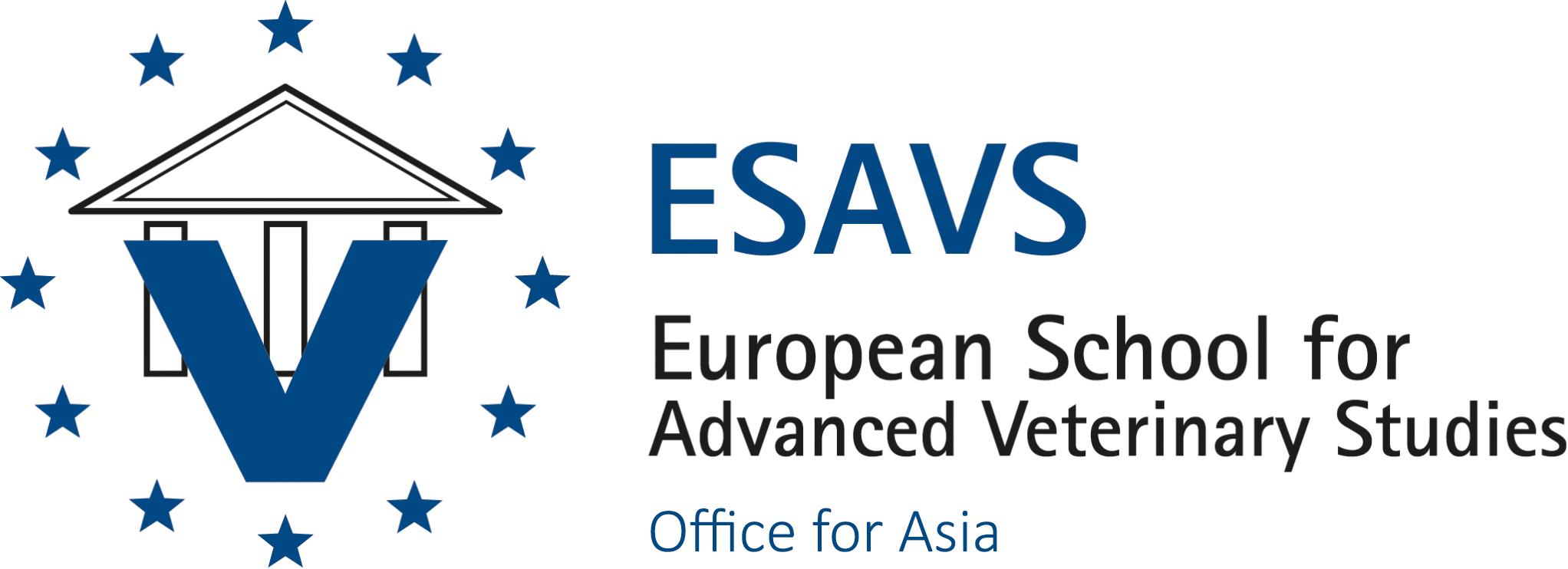Internal Medicine 9:
Basic Cardiology and Emergency Critical Care
TBA, 2024 | China
General Overview
General Overview
The program of the Internal Medicine Course is created to give the chance to participants to deepen their knowledge in medical sciences of companion animals. The courses will be at an advanced level, in case-oriented and problem-solving approaches; each week will focus on a specific “discipline” of small animal internal medicine in order to give to attending veterinarians basic as well as advanced competences in most important topics of the daily practice. By attending to all courses, the participants are expected to achieve an adequate level of skills to be able to solve problems in the most important medical sciences, including all disciplines that are closely interconnected to internal medicine, such as oncology, cardiology, neurology and intensive care.
The complete training programme consists of seven periods of 5 days each; the entire programme will be given from 2018 to 2024. International guidelines and most recent scientific literature will be discussed in lectures, cases will be given to participants in practical sessions; attending vets will be fully responsible to find adequate management plans and reach the diagnosis in practical sessions. Theoretical and practical sessions will allow participants to achieve a level of knowledge and expertise that capacitate them to manage medical cases.
Specific Overview
Specific Overview
Part 1: Cardiology
The aim of this part of the course is to learn how to perform a proper and complete cardiological examination in order to be able to achieve the diagnosis in a correct and efficient way. We will discuss in a very practical manner the main clinical signs that motivate a cardiological consultation, as well as the most relevant diagnostic and treatment aspects of the most frequent and important cardiac diseases in small animals. Of note, during the course we will listen to different types of murmurs in order to learn how to auscultate and interpret each normal and abnormal finding. The course is ideal for colleagues who want to acquire a practical clinical approach to heart diseases, in a short time.
Part 2: Emergency and Critical Care
The aim of this part of the course is to learn how to perform a correct medical examination and how to manage small animals in critical conditions. We will start with the basis of critical care, including the stratification of risks in the emergency room (triage) and the assessment of priorities. We will learn how to use different instruments, such as blood gas analysis, ultrasound and multiparametric monitors in order to achieve the diagnosis and treat their complications. Then, we will discuss about the most frequent conditions of the emergency room, including patients with respiratory distress, bleeding, trauma, sepsis... The participant will learn what to do and not do to in small animals admitted to the emergency room.
Objectives
At the end of this course, the participant will be able to:
- To perform the appropriate interpretation of the most important clinical signs that help us understanding what is wrong in our patients
- To learn how to perform a correct thoracic auscultation
- To know the most useful and practical tips of the clinical examination
- To learn how to perform a proper diagnosis and treatment of the most frequent cardiac diseases, including those in the emergency room
- To recognize a patient in critical condition and prioritize the problems
- To learn how to perform the evaluation of critical patients
- To learn how to perform and interpret ECG, pulse oximetry and systemic arterial pressure in critical patients
- To learn how to perform and interpret blood gas analysis and how to treat each abnormality
- To learn how to perform and interpret Echo-FAST of the abdomen and thorax
- To learn how to recognize and treat the different types of shock
Language
All modules will be held in China, in English language with consecutive translation in Chinese.
Day 1
– Physiology and cardiological examination: the role of auscultation (O. Domenech)
- 9:00-11:00 Cardiovascular pathophysiology of clinical relevance
- 11:00-11:15 Coffee Break
- 11:15-13.00 The cardiological examination: what really matters?
- 13:00-14:00 Lunch Break
- 14:00-17:00 Cardiac auscultation: “what to know, to know what to do”
Day 2
- 9:00-11:00 Mitral insufficiency: etiology, diagnosis and treatment
- 11:00-11:15 Coffee Break
- 11:15-13:00 Dilated cardiomyopathy: etiology, diagnosis and treatment
- 13:00-14:00 Lunch Break
- 14:00-16:00 Hypertrophic cardiomyopathy and feline arterial thromboembolism: etiology, diagnosis and treatment
- 16:00-17:00 Discussion of clinical cases
Day 3
– Common emergency conditions in veterinary cardiology: what to know (O. Domenech)
- 9:00-11:00 Pulmonary oedema: what to know in order to know what to do
- 11:00-11:15 Coffee Break
- 11:15-13:00 Pericardial diseases and pericardial tamponade: clinical aspects and management
- 13:00-14:00 Lunch Break
– Critical care medicine: Basic evaluation (M. Pesaresi)
- 14:00-15:30 How to survive to a night in the emergency room (as a veterinarian): from triage to first medical evalutation
- 15:30-17:00 ECG, SpO2 and SAP in critical patients: basic approach and major tips
Day 4
- 9:00-11:00 Make sense to blood gases: basic approach and simple cases
- 11:00-11:15 Coffee Break
- 11:15-13:00 What is an ultrasound machine doing in the emergency room? Echo-FAST
- 13:00-14:00 Lunch Break
- 14:00-15:30 Shock syndrome: how to recognize it?
- 15:30-17:00 Fluid therapy in critical patients: from shock to maintenance fluid therapy
Day 5
– Critical care medicine: Some commons conditions in emergency room and intensive care unit (M. Pesaresi)
- 9:00-11:00 The dyspnoeic patient: what can I do in the emergency room?
- 11:00-11:15 Coffee Break
- 11:15-13:00 Acute abdomen: is it a surgical emergency or not? Emergency management and decision making
- 13:00-14:00 Lunch Break
- 14:00-17:00 The traumatized patient: how to recognize the “iceberg syndrome”?
Prinicipal Course Master
Course Masters
Dr. Marco Pesaresi
DVM (IT)
Istitutio Veterinario di Novara, Italy
Course Location
Small Animal Hospital Chulalongkorn University, 254 Phayathai Road, Pathumwan, Bangkok 10330, Thailand
Registration and Fees
Discount tuition fee for Thailand, Indonesia, Philippines, Malaysia, India, Sri Lanka, China, Pakistan, Lebanon and Vietnam: EURO 1.450,–
Early registration: Euro 1.350,--
(Deadline for FULL early registration payment: 13 June 2022)
Discount tuition fee for Macao, South Korea and Taiwan: EURO 1.850,–
Early registration: Euro 1.750,-
(Deadline for FULL early registration payment: 13 June 2022)
Tuition fee for Europe, Singapore, Hong Kong, Australia, New Zealand, United Arab Emirates, Canada, USA and Japan: EURO 2.250,–
Early registration: Euro 2.150,-
(Deadline for FULL early registration payment: 13 June 2022)
Related Courses
| Internal Medicine 5: Respiratory Diseases in Dogs and Cats (Course 5/9), Shanghai/China, Dr. Porporato | 07. - 11. Oct 2024 |
For payment via Bank Transfer or Paypal please contact the ESAVS Office for Asia: This email address is being protected from spambots. You need JavaScript enabled to view it.
If you have any questions regarding the registration or any other further details for the courses in Asia please contact the ESAVS Office for Asia: This email address is being protected from spambots. You need JavaScript enabled to view it.




